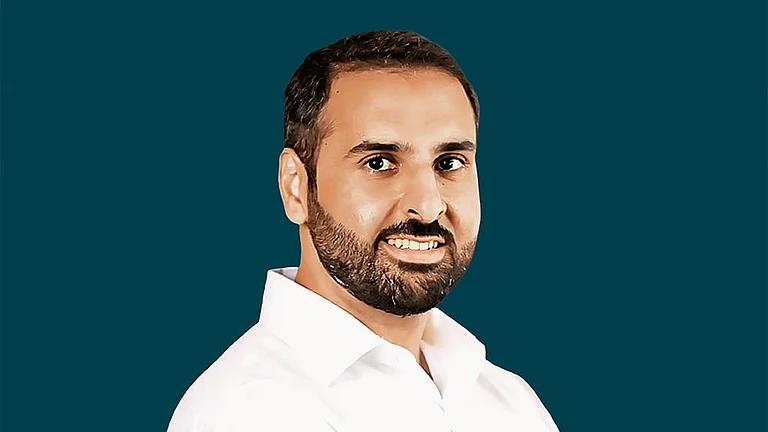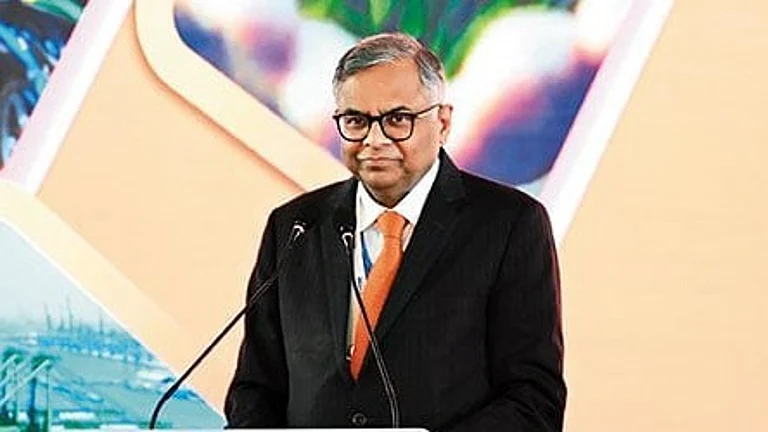After the tense battle with Cyrus Mistry in 2016, Ratan Tata had to be careful about his choice of the next chairperson of Tata Sons. Investors were wary and the world was watching. In this tense phase, Tata picked Natarajan Chandrasekaran to stabilise the ship and take the group to new heights.
A key factor in the choice was Chandrasekaran’s ability to help the Tatas grow in a digital age. Since joining the group as a graduate trainee in 1987, Chandrasekaran has moved up the ranks to reach the position of chief executive at the flagship information technology company Tata Consultancy Services (TCS).
The year 2024 has shown that Chandrasekaran is not only stabilising the group but also laying the foundations for its next big move. The conglomerate is now eyeing a bigger share of the global high-tech manufacturing chain.
A New Era
Speaking at an event in October, Chandrasekaran said: “Between our investment in semiconductors, precision manufacturing, assembly, electric vehicles [EVs], battery and related industries, I think we will create five lakh jobs in five years—manufacturing jobs.”
The group is backing the words of its chairperson with on-ground investments. It has unveiled ambitious plans in the semiconductors segment. A Rs 27,000-crore facility will be up and running by next year in Assam. Another chip-manufacturing facility is in the works in Gujarat.
Not only has Tata group announced its foray into the sector, it is also making a mark globally with collaboration with different players, potentially including Powerchip Semiconductor Manufacturing, Analog Devices and Singapore. From semiconductors and EVs to green energy, Chandrasekaran is ensuring that the conglomerate does not just rely on its past laurels.
From semiconductors and EVs to green energy, Chandrasekaran is ensuring that the conglomerate looks to establish itself in new areas
He is backing this vision by ensuring that group companies are allocating capital to the sunrise sectors. In June this year Tata Motors announced a Rs 18,000-crore investment in EVs till financial year 2030. In September Tata Power said that the company would invest up to Rs 75,000 crore in the next five or six years to expand renewable power.
Naveen Khajanchi, an executive coach who tracks developments at Tata group, says that Chandrasekaran’s experience makes him fit for the transition the group is undertaking. “He is a leader who is focused on value addition. Following the tradition of Tata group, he is ensuring the conglomerate continues to contribute to nation-building.”
The ability to get into so many newer areas is backed by the robust performance of the conglomerate under Chandrasekaran. Between financial years 2019 and 2024, the combined profit of listed Tata companies surged by 351% from Rs 18,976 crore to Rs 85,510 crore.
Guardian of the Future
With the demise of Ratan Tata and the appointment of a new leader—Noel Tata—to Tata Trusts, it is incumbent upon the Tata Sons chairperson to ensure that the transition is smooth. Given Tata Trusts is the largest shareholder of Tata Sons, the two heads have to ensure a good working relationship.
Thomas Mathew, former bureaucrat and biographer of Ratan Tata, says, “He [Chandrasekaran] understands the ethos of the House of Tatas and the legacy of Ratan Tata. He is building upon the strong foundations set up by Ratan Tata. As he has always been with Tata group, he knows what the group needs right now.”
The group faces headwinds though. The rise of artificial intelligence (AI) and unstable geopolitical environment are bearing on TCS.
Chandrasekaran admitted that the technology will lead to job losses and disruption. Speaking at TCS’ annual general meeting this year, he said, “In certain areas, AI and GenAI will automate stuff that will result in higher productivity and job losses. But in some other cases AI will require a lot more capability and a lot more jobs will be created in certain areas like data management. It’s a mixed bag and we have to actively embrace it to reskill people.”
When businesses around the country laid off people during the pandemic, Ratan Tata wondered about the ethics of Indian companies, arguing that companies did not respect the loyalty of employees. His words embody the Tata spirit.
As we enter the era of innovation and disruption, the group will need a guardian of this spirit. When Chandrasekaran was appointed, he was considered a surprising choice. The zeal for innovation as well as caution for disruption shown this year by the 61-year-old depict why he is the right captain for Tata’s ship.












